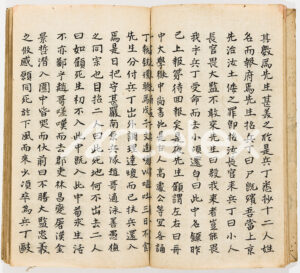Lim Hyun-joo (1859 ~ 1915) was a Korean independence activist of the Korean Empire who fought against Japanese imperialism.
He resisted the harsh Japanese rule by submitting several petitions, but ultimately, his efforts were in vain. He continued his anti-Japanese struggle until his death in 1915 due to illness.
Lim Hyun-joo’s notable work, *Meesan Geoui Rok* (Record of the Meesan Uprising), was written in 1905, following the example of his mentor, Choi Ik-hyun. The book consists of 44 chapters.
Translation (Beginning Part):
On October 21, 1905, during the Gwangmu era, the Japanese key figure, Ito Hirobumi, led troops into Gyeongseong, surrounded the palace, and, with the help of traitors like Yi Ji-yong and Yi Geun-taek, forced our emperor to sign a protection treaty.
As a result, the Residency-General was established, and the land and people of Korea fell into Japan’s grasp.
Prior to this, other prominent Japanese figures had taken control of our government, abolishing the police bureau and the Ministry of Justice, and placing Japan in charge of the country’s police duties.
In response, Choi Ik-hyun was summoned and tearfully advised the king on policies to save the country during a royal audience, but his advice was ignored, and he returned to his private residence.
He then laid down outside the palace gates and repeatedly submitted petitions, but was eventually arrested by Japanese soldiers and threatened to return to his hometown.
Following this, Choi withdrew from the world, isolated himself in a remote mountain village, and refused to meet with anyone.



